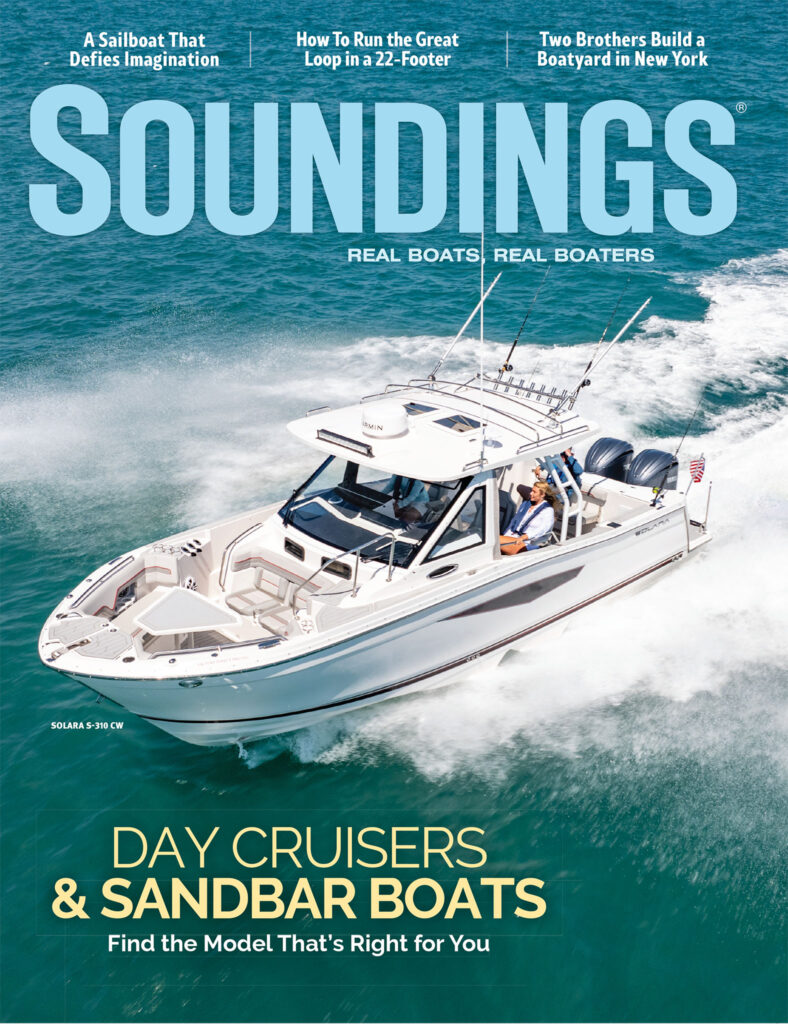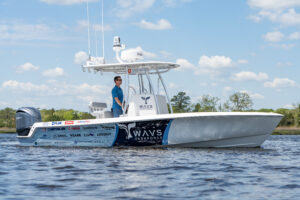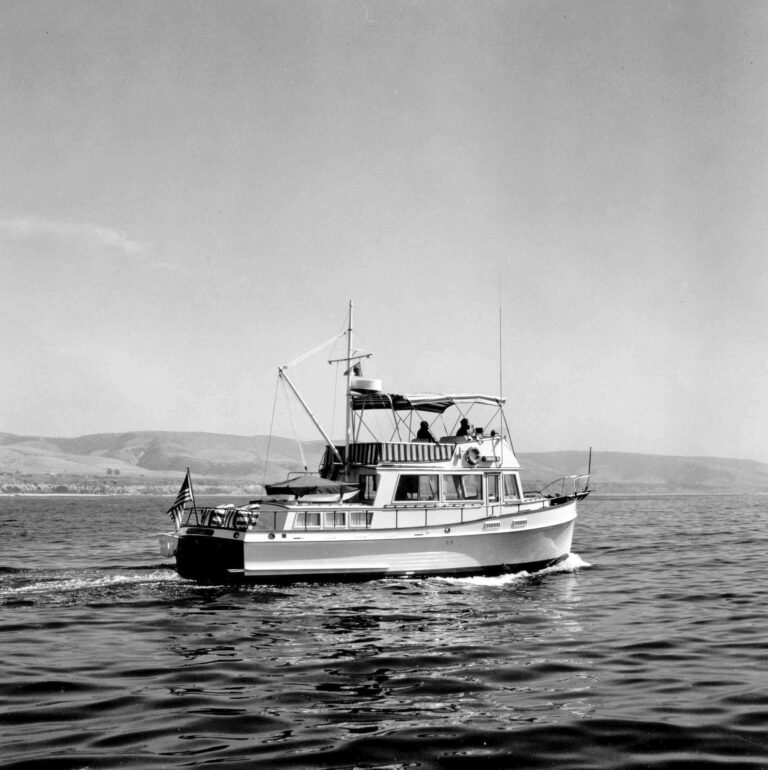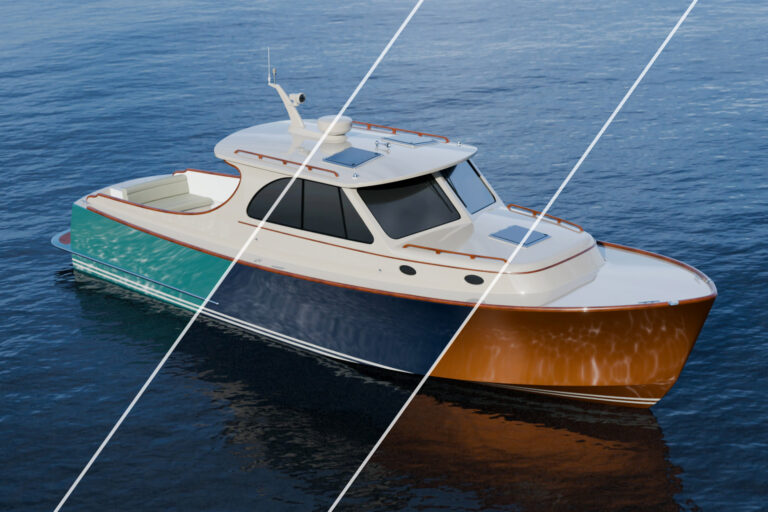
Fraud charges were recently unsealed in a 21-page indictment against two former Illinois boat dealership employees in a case that marine industry experts say is rare, but that offers an opportunity for boat buyers to think about how to choose a reputable broker or dealer.
Jeffrey D. Gibbs and Kara M. Wilkey, both former employees of Clinton Marine II, which sold used and new boats, are facing decades in prison on a combined 18 counts of wire fraud, mail fraud, bank fraud and aggravated identity theft. According to the U.S. Attorney’s Office in Central Illinois, the two obtained loans on fictitious boats, took out loans using forged signatures, sold boats without paying off the customer’s loan or remitting payment, and collected payments for taxes, titles and fees without actually paying for those expenses. Instead, the indictment alleges, Gibbs and Wilkey used the more than $2 million to buy automobiles, take vacations, go shopping and otherwise “support their lifestyle.”
Such egregious cases don’t happen often, says Jon Burkard, president of
Allied Marine in Florida and chairman of the International Yacht Brokers Association ethics committee. “It’s pretty rare, but a boat dealership will have a floor plan and get desperate if they don’t sell enough boats to meet all their expenses. They start selling boats without paying the bank,” Burkard says. “But in my 40 years of doing this, I’ve only seen it, like, twice. It’s not a common thing. And it’s usually with smaller boats.”
Many of the boats named in the indictment are from well-known manufacturers including Cobalt, Chaparral, Malibu and Monterey. The charges have nothing to do with the actions of those boatbuilders, but instead reinforce the reality that consumers—even when buying a well-known boat brand on the new or brokerage market—need to make sure they are working with a reputable dealer or broker.
The question of how, exactly, to find a reputable dealer or broker is one that Jeff Stanley has heard boaters discussing for decades. As the owner of Gilman Yacht Sales in Fort Lauderdale, and as a member of the IYBA ethics committee with more than 40 years’ worth of industry experience, Stanley has concluded that one technique for sussing out the best brokers and dealers outshines every other option that consumers have available to them.
“The absolute best way is referrals,” Stanley says. “If you’re a boat buyer and you’re moving up, there’s somebody in your marina you can ask: Who’d you buy your boat from? Did you have a good experience? You’ll hear, ‘Oh, he’s the best’ or ‘Oh, it was the worst.’ That’s a good place to start.”
Burkard says California and Florida are the only states that have licensing for yacht brokers. “They require brokers to have bonds; they do background checks,” he says. “At our company, Allied Marine, whenever we hire a broker, you could be the pope and you’re still getting a background check.”
His top suggestion for consumers is to ask whether money will be held in an escrow account. (The answer should be yes.) He also recommends that buyers and sellers alike hire a maritime attorney to handle the closing on all boats 30 feet and larger. And, Burkard says, look for a dealer’s or broker’s consumer reviews online. If you see a number of bad reviews—or no reviews at all—it should be a red flag. “A more established firm, in my opinion, is the way to go,” he says, adding that five or 10 years in the industry qualifies as being established. “They don’t have to be big. They just have to be established.”
Stanley also says it’s important to know the person’s background. A broker or dealer who gets caught breaking the law and serves jail time can sometimes return to the industry later. As an example, he recalls a broker from Fort Lauderdale who was failing to pay off loans after selling boats in the 100-foot range. “He went away for a while, but now he’s back,” Stanley says, adding that the IYBA also has had to deal with a handful of ethical violations among members of the professional organization. “We have thrown out a few people for doing the wrong thing.”
Law enforcement agencies also can take time to root out bad actors, with multiple agencies sometimes needing to coordinate on a case. The accusations in the Illinois indictment, for instance, span several years and involved an investigation by the Federal Bureau of Investigation, working with the DeWitt County Sheriff’s Office, Illinois Department of Natural Resources and Illinois Secretary of State.

One of the biggest challenges for consumers is that it can be hard, until after the sale, to tell how honest—or not so honest—a broker or dealer truly is. This challenge can be especially acute for first-time boat buyers, whose participation in the sport has skyrocketed during the Covid-19 pandemic. No matter whether a boat is new or on the brokerage market, Stanley says, selling the boat is the easy part. The hard part is getting service after the sale.
The Illinois indictment offers an example of that reality. One of the allegations involves buyers of a 2015 model-year boat who took delivery on it, but did not receive a title. They only realized there was a problem after trying to contact the dealer to receive a copy of the title, prosecutors say.
“Dealers, how they react to problems is very important,” Stanley says. “If you have somebody who won’t service the product, you should pay attention to that.”
Stanley also warns against trusting whatever broker’s name happens to be atop an online boat listing, no matter how nice the boat seems to be. Often, Stanley says, customers will be in a safer position working with a trusted broker who can help to evaluate each boat honestly.
“If you call on the ad, you can get hoodwinked pretty easily,” he says. “You’re calling some guy with a listing who will do everything he can to tell you that’s the boat you should buy. But if your slip-mate says, ‘Call Bob; he did great by me,’ then Bob is going to tell you whether or not you should buy that particular boat.”
This article was originally published in the March 2021 issue.











